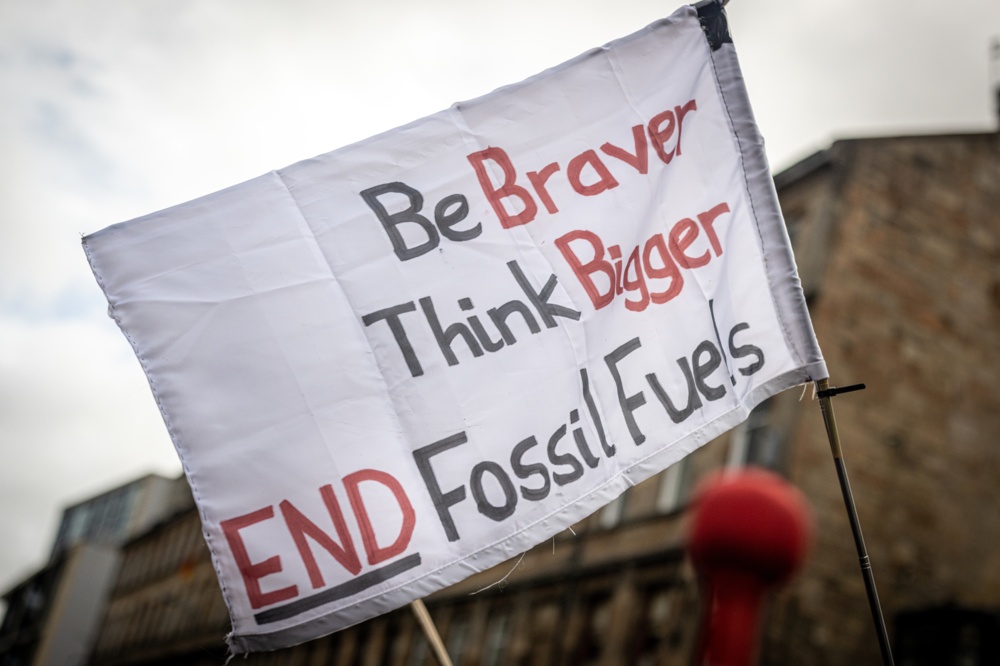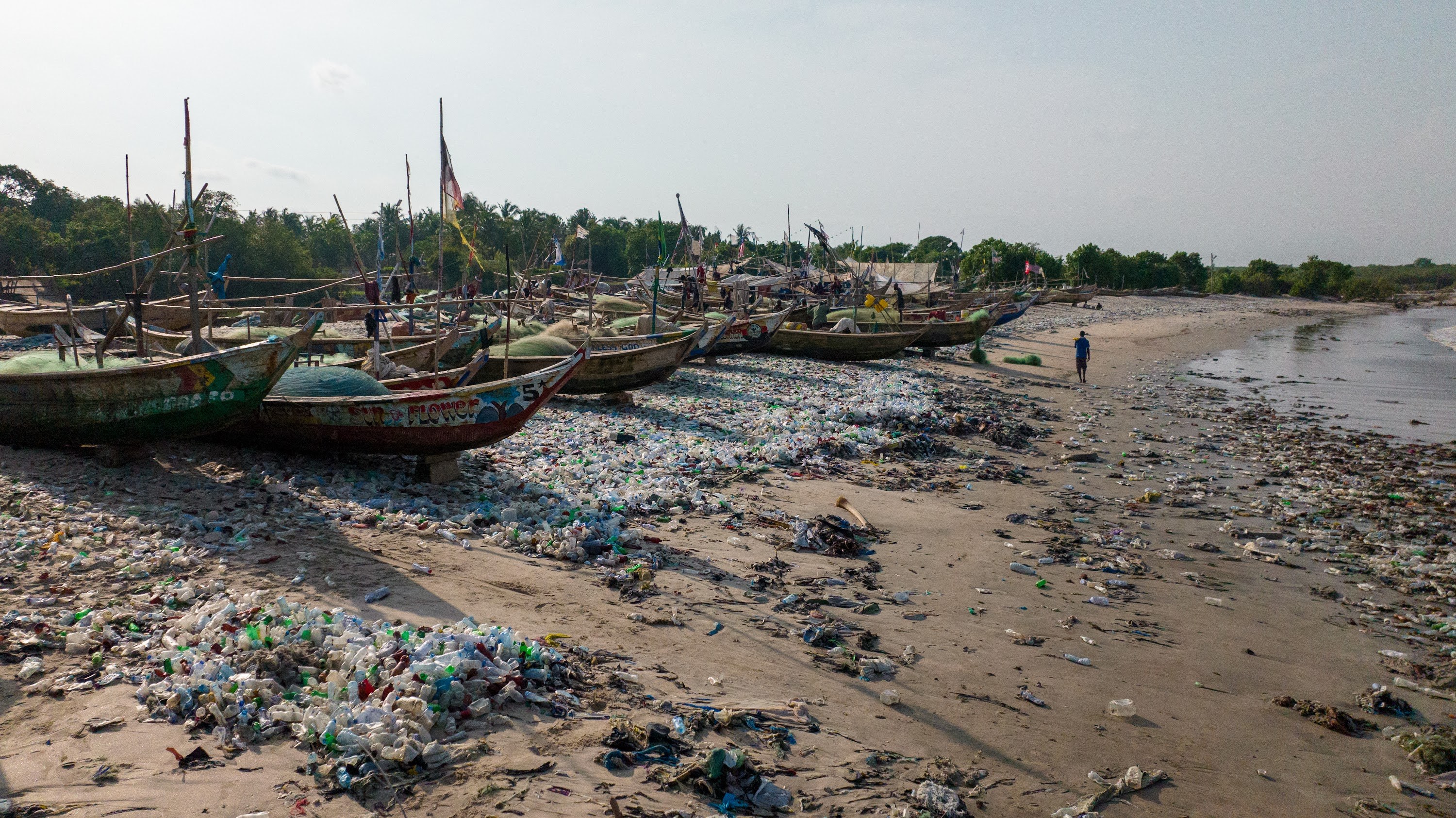
The corporate corruption of the COPs goes right to the top
The appointment of oil executive Dr Sultan Al Jaber as President of COP28 signals that the corporate capture of the COPs is complete. The power big polluters wield at COPs has continued to grow even as the climate crisis has worsened - the time has come to end this malevolent influence and protect our planet.
This year’s COP28 conference is a crucial opportunity for global governments to avert climate catastrophe by committing to rapid emissions cuts. But the UAE's appointment of Dr Sultan Ahmed Al Jaber – CEO of the Abu Dhabi National Oil Company (ADNOC), the 14th most polluting oil company in the world – as COP28 president makes a mockery of the entire COP process and likely renders any real climate action impossible.
Allowing a sitting oil company CEO to run the world’s biggest climate conference presents an irreconcilable conflict of interest. The most recent IPCC report reiterated that fossil fuels are completely incompatible with any pathways to remain within 1.5C of warming. Contrast that with the following quote from ADNOC’s website and it is clear that Al Jaber cannot be trusted to advocate for a fossil-free future:
"We are an emerging upstream company… with a mandate to stay focused on exploring the UAE's undeveloped oil and gas potential."
Beyond the words and intentions of individuals, ADNOC is one of the world’s deadliest historic emitters, emitting 13.84 billion tonnes of CO2 between 1965 and 2019. Last year they produced 2.7 million barrels of oil per day and they aim to increase this to five million barrels per day by 2027.
Al Jaber’s appointment is the disastrous final step in the fossil fuel industry’s gradual but systematic capture of the COP process. Despite irrefutable evidence that fossil fuel interests are antithetical to all life on Earth, their influence has been growing each year, as evidenced by the steadily increasing number of fossil fuel delegates at COPs.
A staggering 636 fossil fuel lobbyists attended COP27 in Egypt last year, up from the 503 delegates at COP26, and more than any national delegation aside from COP28 hosts the UAE. Their presence allowed fossil fuel delegates to spread misinformation about the climate crisis, delay essential action on emissions mitigation, rebrand gas as a transitional fuel and make new fossil fuel deals behind closed doors.
If the UAE allows a fossil fuel CEO to be president, COP28 will become a farcical sideshow allowing companies to auction off fossil fuel contracts in secret. COP27’s move to rebrand gas as a transitional fuel is likely to be revived despite overwhelming evidence that new gas projects would threaten the economic stability of many African countries and exacerbate the impact of the climate crisis for the most vulnerable.
Previous COPs have been notorious for choosing high-polluting companies as sponsors, despite the hypocrisy of these choices and public backlashes against them. Last year Coca Cola, the world’s biggest corporate plastic polluter, sponsored the event in a dismal demonstration of corporate greenwashing.
While fossil fuel producers and other high polluting companies are buying their way into the corridors of power, marginalised people are being systematically shut out of the COP process.
Many African activists were excluded from COP27 – supposedly the ‘African COP’ – as other activists were forced to adhere to protest restrictions. Inside COP27 things were no better. Despite 300 Indigenous delegates attending COP27, they were largely sidelined when it came to including Indigenous rights in the final agreement.
For COP28 to offer a strong programme of climate justice, it must redress the balance of power. The only way to do that is by removing the distorting influence of fossil fuel interests that is now at the core of COP and giving real, decision-making influence to the people most affected by the climate crisis.
However, there is no need for world leaders to wait for the COPs to introduce climate action - it is the greatest investment they could make. Rapidly cutting emissions now is imperative, actively beneficial and relatively straightforward. Key policies to make public finance readily available for a renewable energy transition, invest in nature-based solutions and transfer climate finance to the global South will help ensure a just, sustainable transition. We have the solutions to transform our world with or without COP. Now is the time for action.
SIGN UP FOR OUR EMAILS AND STAY UP TO DATE WITH EJF

